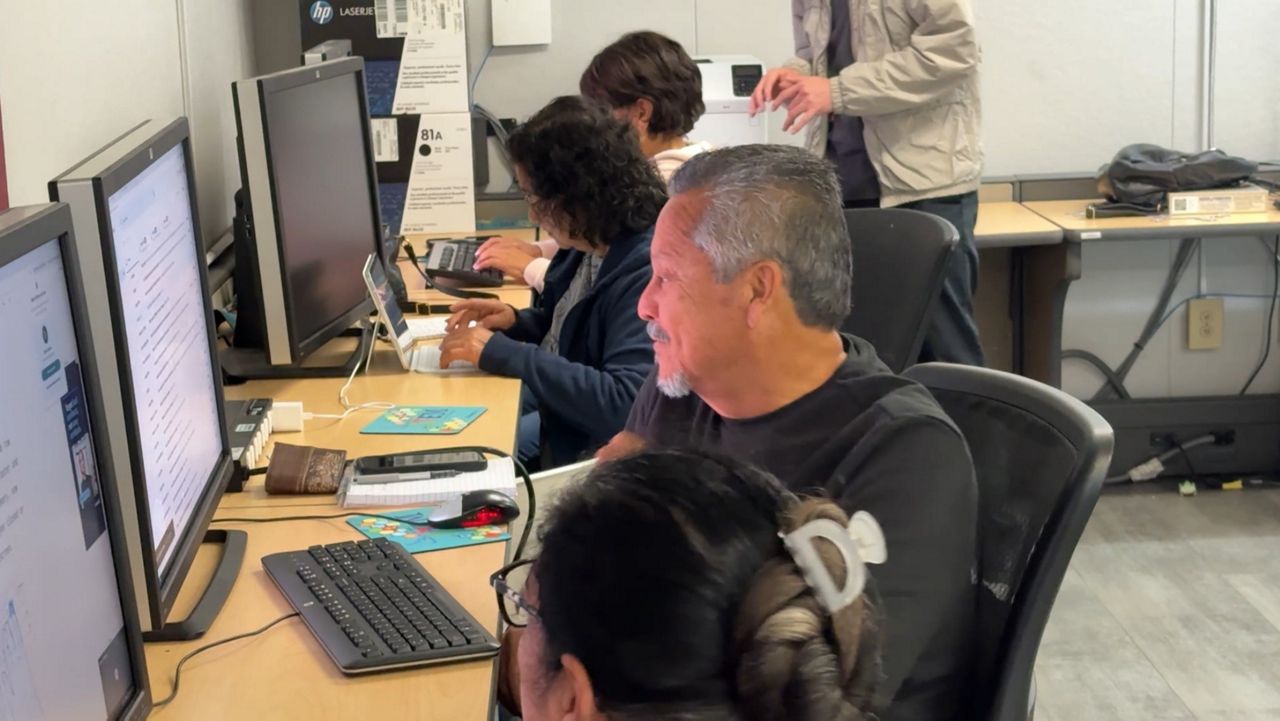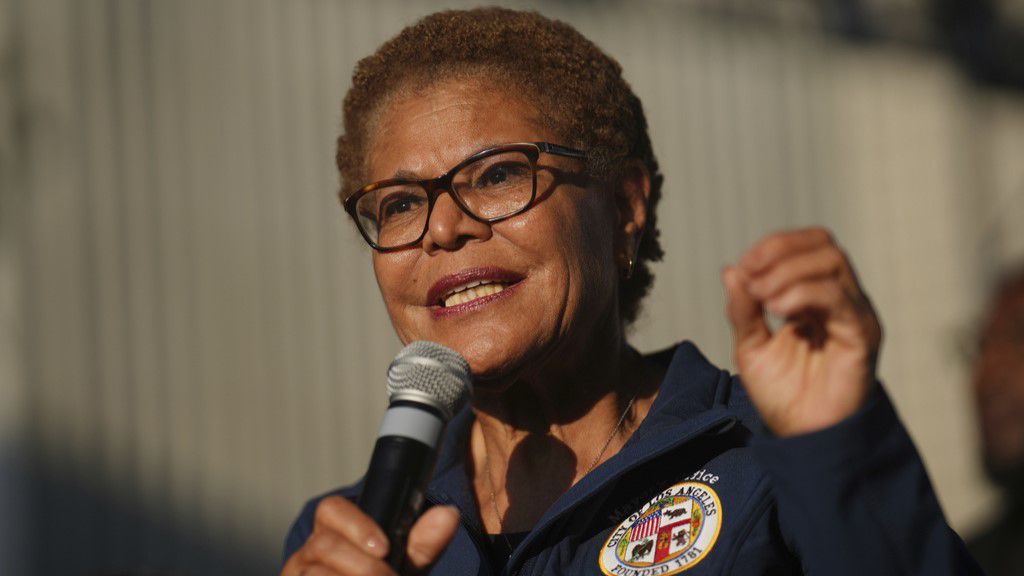Good evening! We’re wrapping up the day for you with the most important stories you need to know and your weather outlook.
Your Weather Planner
We are tracking offshore winds through Tuesday. Expect very little marine influence on the coast.
There is a weak storm that could usher in a colder air mass, allowing for temperatures to dip beginning midweek.
Late week, temperatures will rebound back to seasonable
Tomorrow’s Highs


Introducing Spectrum News+
Watch the latest news from across the country.
Today’s Big Stories
1. LA mayor, Rep. Garcia call for investigation into federal detainment of U.S. citizens and immigrants
Los Angeles Mayor Karen Bass, Rep. Robert Garcia and other city officials called for a congressional investigation into what they called the “unlawful and unconstitutional abduction, detainment and alleged abuse” of U.S. citizens and immigrants by federal agents without a judicial warrant or probable cause.
“I will always stand up to protect Los Angeles. Reports of Angelenos — U.S. citizens — being tased, dragged, and unlawfully detained should make us all concerned,” Bass said in a statement. “I’m calling for an immediate congressional investigation into these egregious injustices, and I thank Congressman Garcia for his support. This is not just an assault on the people of Los Angeles — this is an assault on every person, in every city in this country.”
Garcia, who once served as the mayor of Long Beach, currently represents California’s 42nd congressional district and is the ranking member of the House Oversight and Government Reform Committee. He said American citizens are being dragged off the streets by masked men and thrown into detention cells without access to lawyers.
“No one, regardless of their background or appearance, should be living in fear of being thrown behind bars by their own government because of their race or what they look like. This is not the America we know and love. Every person in this country has rights, and DHS must stop trampling on our civil liberties. Their actions are unconstitutional, unacceptable, and completely un-American, and we will not stop fighting until this Administration is held accountable.”
2. Gov. Newsom signs bill to make Diwali a state holiday
California is home to the largest South Asian population in the country, and next year a new state holiday will be welcomed by many.
Gov. Gavin Newsom signed Assembly Bill 268 into law making Diwali, which is also known as the Hindu Festival of Lights, a state holiday beginning in 2026.
There were several celebrations throughout Southern California, including at Don Knabe Community Regional Park in Cerritos, an area with a large Indian population.
“This is our fourth year,” said organizer Deepak Jhaveri. “And the whole idea was, we wanted to bring Diwali to the mainstream America.”
Hundreds of people from the community, both South and Asian and not, came to the park to enjoy SoCal Diwali. There were dance performances, several local vendors selling fashion-related merchandise, and of course, plenty of food at the celebration.
3. Newsom launches modernized unemployment benefits program amid shutdown
The state of California is launching a new, upgraded and modernized unemployment benefits program, making it easier for customers receiving unemployment benefits to report required wages and income information while receiving benefit payments, the governor’s office announced Monday.
The federal government shutdown has reached its 20th day, with workers and businesses reporting impacts in recent weeks.
The announcement is part of Gov. Gavin Newsom’s strategy to make state government work better for Californians, with a key update launched to modernize the Employment Development Department’s myEDD online benefit portal.
“Our new Wage Tool is another example of how we’re prioritizing customer-centered improvements,” said California EDD Director Nancy Farias in a statement. “Reporting wages accurately helps Californians get paid faster and minimizes follow-up work from our staff so they can spend more time helping customers where it matters most.”
4. Advice to feed babies peanuts early and often helped thousands of kids avoid allergies
A decade after a landmark study proved that feeding peanut products to young babies could prevent development of life-threatening allergies, new research finds the change has made a big difference in the real world.
Peanut allergies began to decline in the U.S. after guidance first issued in 2015 upended medical practice by recommending introducing the allergen to infants starting as early as 4 months. The rate of peanut allergies in children ages 0 to 3 fell by more than 27% after guidance for high-risk kids was first issued in 2015, and by more than 40% after the recommendations were expanded in 2017.
“That’s a remarkable thing, right?” said Dr. David Hill, an allergist and researcher at Children’s Hospital of Philadelphia, and author of a study published Monday in the medical journal Pediatrics. Hill and colleagues analyzed electronic health records from dozens of pediatric practices to track diagnoses of food allergies in young children before, during and after the guidelines were issued.
“I can actually come to you today and say there are less kids with food allergy today than there would have been if we hadn’t implemented this public health effort,” he added.

(Photo courtesy Associated Press)
Your Notes for Tomorrow
Japanese parliament expected to vote on new prime minister
State Employment and Unemployment
NBA season begins
Posthumous memoir by Virginia Giuffre published
Former French President Nicolas Sarkozy starts prison sentence
In Case You Missed It

(Spectrum News/Jamie Kennedy)
Using what may seem like common place tech like sending emails, using word documents, even how to turn on a smartphone or computer, isn’t always an easy thing said retired pre-school teacher Antonia Rodriguez — who said she had minimal training in Mexico.
“In Mexico, all I learned was typing,” Rodriguez said. “But now technology has changed so much that I just want to learn what’s changed since I started with computers.”
It’s why she and others have come to digital literacy classes organized by Sacramento State in partnership with community centers to help minority and underserved communities, using a $3 million federal grant.
Click the link above for more information.

